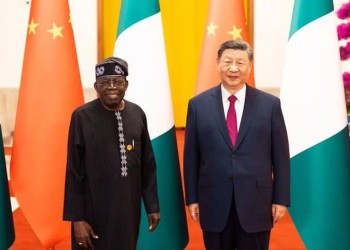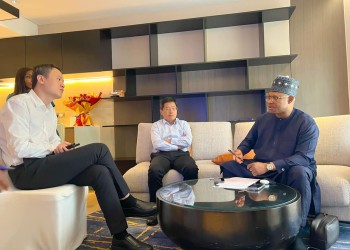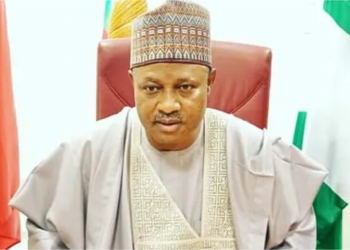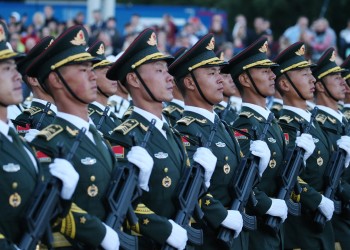Who is a placeholder? In politics, a placeholder is an official appointed temporarily to a position, with the understanding that they will not seek office in their own right.
Or is a person or thing that occupies the position or place of another person or thing, The bill would empower the governor to appoint a placeholder to a vacant seat, to serve through the next general election cycle
Let’s see how presidential aspirant in different parties chose their placeholders
All Progressives Congress primary
With President Muhammadu Buhari having been elected to the office of president twice, he was ineligible for re-nomination. There was no formal zoning agreement for the APC nomination despite calls from politicians and interest groups such as the Southern Governors’ Forum to zone the nomination to the South as Buhari, a northerner, was elected twice.
The party held its indirect presidential primary on 8 June 2022 in Abuja and nominated Bola Tinubu former Governor of Lagos State. In mid-June, the APC submitted the name of Kabir Ibrahim Masari—a politician and party operative from Katsina State—as a placeholder vice presidential nominee to be replaced later.
Labour Party primary
On 30 May 2022, shortly after former Governor of Anambra State Peter Obi joined the party from the PDP, the Labour Party held its presidential primary in Asaba where Obi was nominated unopposed. On 17 June, the party submitted the name of Doyin Okupe—a physician and former PDP candidate who became the Director-General of the Obi Campaign Organization—as a placeholder vice presidential nominee to be substituted for someone else at a later date.
Doyin Okupe has hinted at the Labour Party choosing a young northerner as the running mate to Peter Obi ahead of the 2023 presidential election.
Okupe said this recently during an interview with Channels TV while confirming he is just a placeholder until consultations and coalition in the Labour Party are concluded.
When asked about the Christian-Christian ticket affecting Obi’s chances, Okupe disclosed that the Labour Party is considering a young vice president and he is also willing to sacrifice to return power to the youth.
Okupe said, “Nigerian youths must move closer to the Labour Party, we are prepared to make any sacrifice to have Nigerian youths have the country back in their hands and willing to make ourselves available at any cost so Nigerian youths can ride on our backs to power and that includes the position of the vice president.
“The choice of Okupe as VP candidate aligns with the Nigerian constitution and the electoral act.
“We are also considering so many things like a coalition with the third force, we need NNPP, SDP, and everybody.”
As every election season approaches, Nigerian politics becomes dangerous, with politicians displaying, a winner-takes-it-all, the end justifies the means attitude, to the detriment of the citizens.
With 2023 general elections fast approaching, this piece of legislation if assented to by Buhari might lead to a series of litigations by aspirants at the level of party primaries. Also, the option takes away the people’s only real power, which is to vote for their preferred candidate. Furthermore, there are reasons candidates should be subjected to elections because once you adopt consensus, you subvert popular will and so members of the party are not allowed to nominate candidates. Nomination, therefore, becomes the exclusive preserve of political big wigs in the party to determine who a candidate is.
The spokesman of the House of Representatives, Hon. Benjamin Kalu expressed optimism that once the Bill is transmitted to Buhari in seven days he will look at it as quickly as possible. Aside from concerns about the inclusion of the consensus option, Nigerians are hopeful that President Buhari will not hesitate to assent to the Bill.
Inibehe Effiong has said Nomination of “placeholders” by Bola Tinubu and Peter Obi is unknown to law. The suggestion that a vice presidential candidate can be substituted at will or randomly is erroneous
Presidential candidates, political parties, the media, and the general public are advised not to trivialize the process of nominating a vice presidential candidate. I understand that some political parties resorted to this arrangement to beat the deadline for submission of nominations set by INEC. But as earlier posited, this arrangement is not without risk, Inibehe Effiong said.
The novel concept of a “placeholder” that some presidential candidates are resorting to is unknown to the Nigerian Constitution and the Electoral Act. When a name is submitted to the Independent National Electoral Commission (INEC) as a vice presidential candidate, the name’s bearer automatically and legally becomes the vice presidential candidate of that political party, simpliciter.
However, Section 31 of the Electoral Act, 2022 allows for the withdrawal of candidacy. Unlike the position under the repealed 2010 Electoral Act, where political parties were allowed to change or substitute candidates based on “cogent and verifiable” reason(s), the Electoral Act, 2022 expressly prohibits the substitution of candidates; subject to only two permissible exceptions.
Now, what are the fate of Bola Tinubu and Peter Obi and their parties?
The associated risk with this arrangement is that if the “placeholders” subsequently fail or refuse to withdraw, as expected or agreed in writing after they have been validly nominated, the parties and the presidential candidates will have no choice but to stick with them to the end of the election.
It is reported in the media that the presidential candidates of the All Progressives Congress (APC) and the Labour Party (LP), Senator Bola Ahmed Tinubu and Mr. Peter Obi, respectively, have nominated persons as “placeholders” to stand in temporarily pending when they will nominate “substantive” vice presidential candidates.
This is a risky political arrangement. It is not rooted in law. The individuals so nominated are the vice presidential candidates of the APC and the Labour Party. However, Tinubu and Obi and their parties can substitute them if the conditions stated above are met by the “placeholders”.
The associated risk with this arrangement is that if the “placeholders” subsequently fail or refuse to withdraw, as expected or agreed in writing after they have been validly nominated, the parties and the presidential candidates will have no choice but to stick with them to the end of the election.
The suggestion that a vice presidential candidate can be substituted at will or randomly is erroneous. The position of vice president is elective, not appointive. As the Supreme Court correctly stated in Attorney General of the Federation V. Atiku Abubakar (2007) 10 NWLR (Pt. 1041) 1, a vice president is the vice president of the country; not of the political party under which he was elected.
Nigeria today feels, that a vice presidential candidate is a candidate. a person cannot be validly elected as president except he nominates another candidate as his associate from the same political party to run with him to occupy the office of a vice president if they’re elected.













































